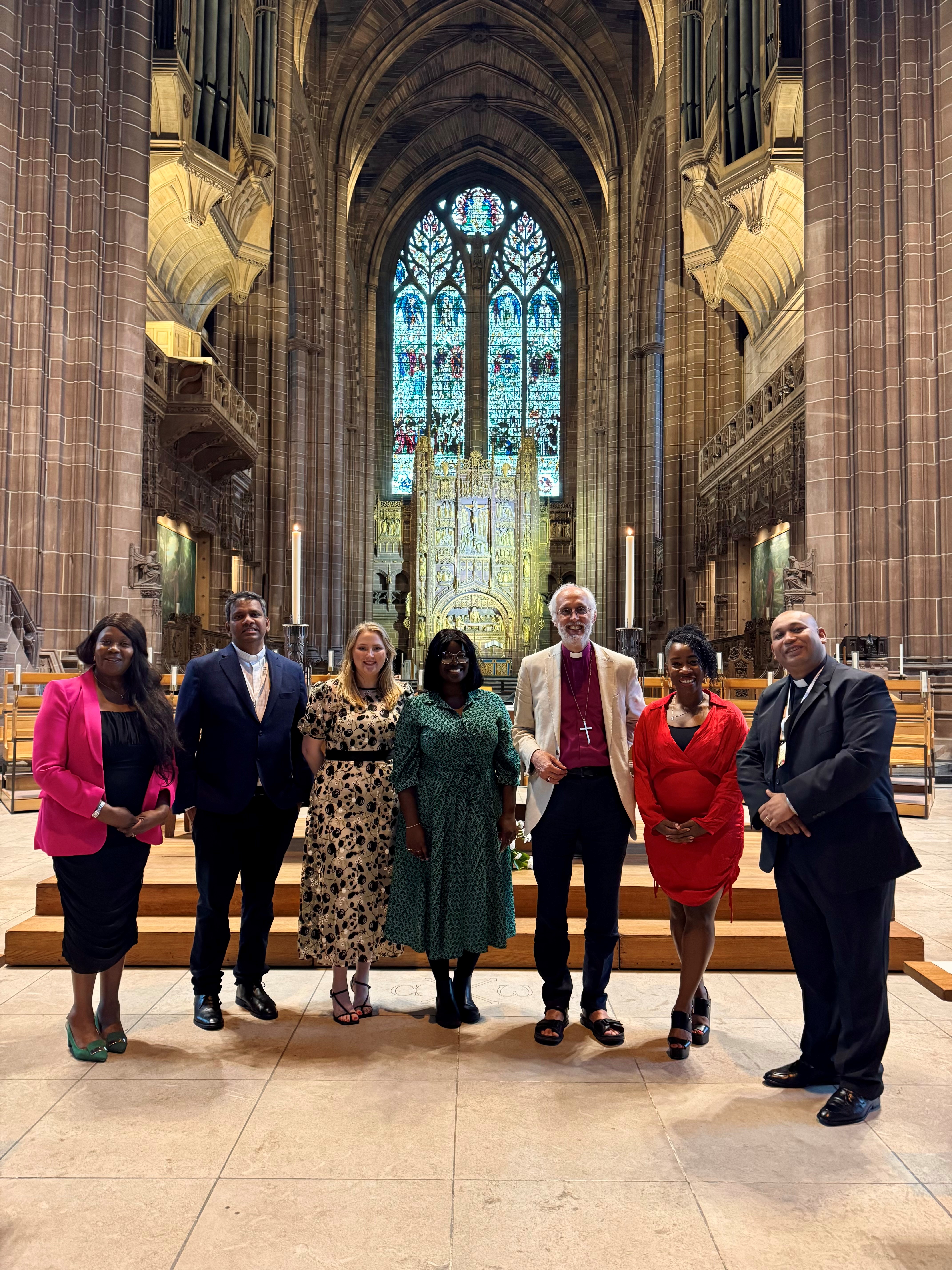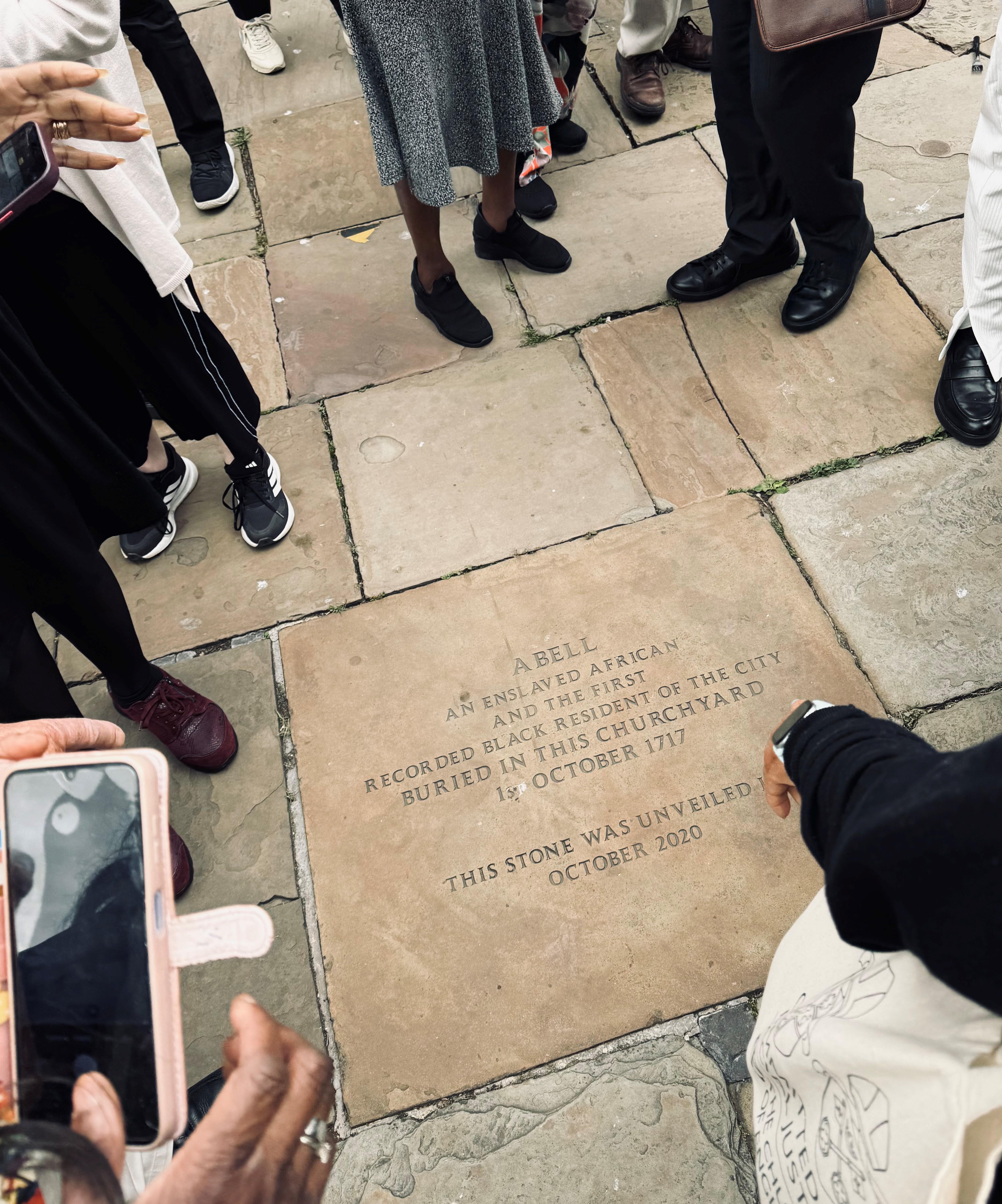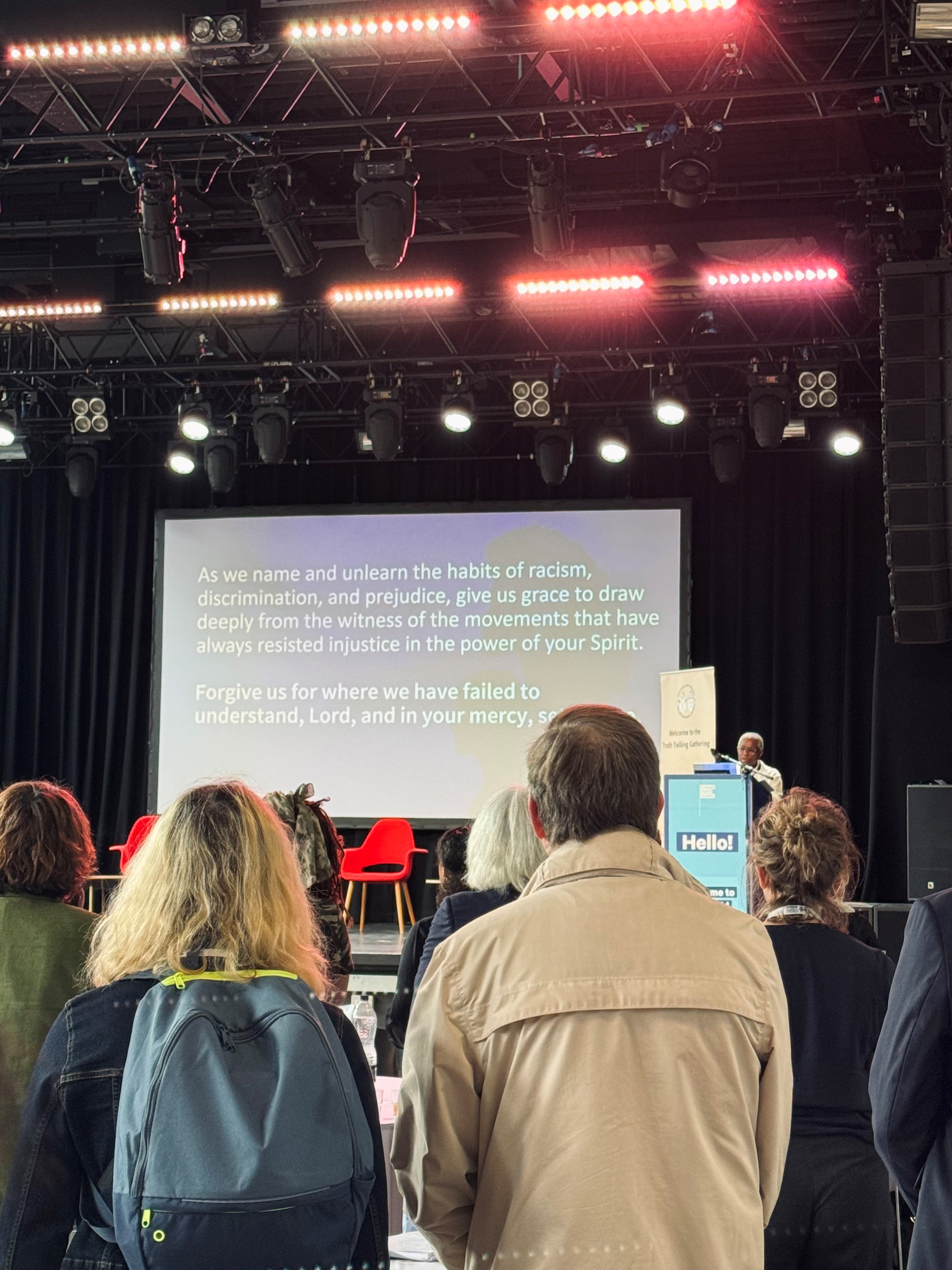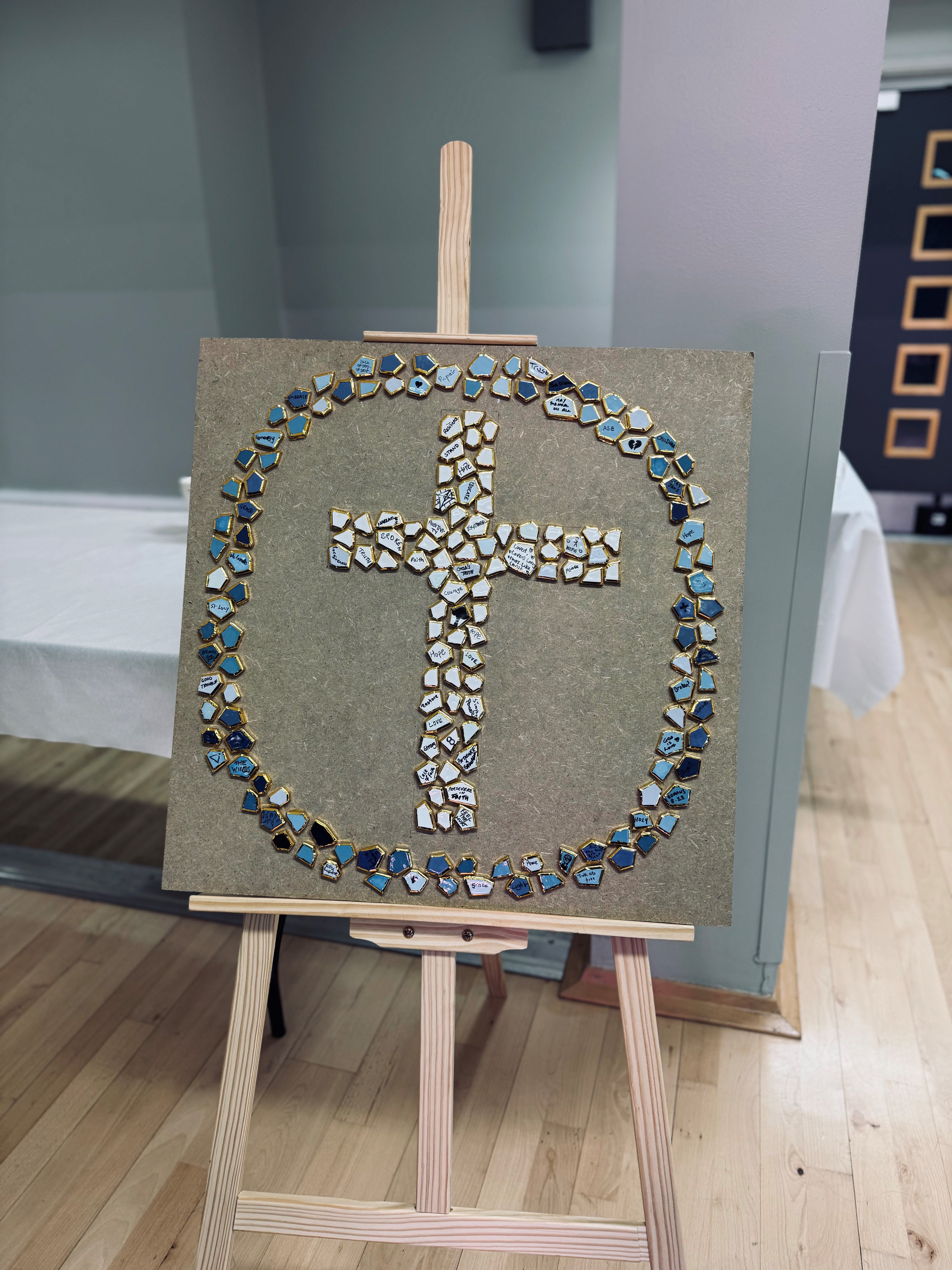 This week, members of clergy and the Shades team joined delegates from across the country for the Truth-Telling Gathering at the University of Liverpool - a city with a deep and complex history tied to the transatlantic slave trade. This significant location set the tone for a powerful and moving experience of reflection, truth, and learning.
This week, members of clergy and the Shades team joined delegates from across the country for the Truth-Telling Gathering at the University of Liverpool - a city with a deep and complex history tied to the transatlantic slave trade. This significant location set the tone for a powerful and moving experience of reflection, truth, and learning.
The gathering was part of the Church of England’s ongoing journey toward racial justice, following the commitments outlined in From Lament to Action. Over the past two years, the Church has taken important steps to acknowledge its historic involvement in African chattel enslavement and to commit to truth, sorrow, and repair.
Our diocese was represented by Bishop David, the Revd Daniel Ramble, Area Dean of Oldham and Ashton, the Revd Sachin Awale, Team Vicar at Saddleworth, alongside Ni-Cola Scott, Tasha Turner, and Georgia Moore from the Shades Team.
The event brought together theologians, historians, clergy, and community leaders for honest dialogue and collective reflection. Those attending from Manchester have written this reflection to share their experiences at the gathering:
A Message from the Manchester Participants
Dear Sisters and Brothers in Christ,
We, the participants from the Manchester diocese at the Truth Telling Gathering in Liverpool (23rd–25th June 2025), return to you filled with both humility and hope. This learning was not an ordinary church conference. It was a pilgrimage - a sacred encounter with truth, grief, grace, and the enduring promise of resurrection. We wish to share something of this transformative experience with you, our diocesan family.
The Truth-Telling Gathering was convened by the Church of England’s Racial Justice Unit in partnership with the University of Liverpool and the Anglican Diocese of Liverpool. Its purpose was to confront the Church’s role in transatlantic chattel slavery and its enduring legacies. This understanding was not just about history - it was about truth, healing, and what it means to be the Church now.
We heard brutal truths. Evidence was shared that over 11,000 individuals in Britain - including clergy, bishops, and Church institutions - were actively involved in financing, facilitating, and benefiting from slavery. Professor William Pettigrew’s presentation laid bare the scope of Anglican involvement: clergy investing in slave ships, church buildings funded by wealth extracted from enslaved labour, and Christian theology used to justify human trafficking. This ‘Truth’ is not a remote past - it is part of our ecclesial DNA. Nevertheless, from the very beginning, the gathering was saturated with prayer and the Spirit’s presence. We were called not to despair but to transformation.
Canon Stephanie Spellers, a leading voice in racial justice and reconciliation in the Episcopal Church, spoke with power and tenderness. “The Church must become cracked open,” she said, “so that the Spirit can move through our wounds.” Her vision of a Beloved Community is one in which healing comes not by denying the past but by naming it and offering it to God for Repair.
We were reminded that the Church is both wounded and called to be a healer. We cannot offer good news to the world while ignoring the pain our structures have caused. Through moments of deep lament and radical honesty, we experienced the beginnings of healing - not just for the descendants of the enslaved, but for all of us who have inherited a broken system.
Each of us was invited to the Kintsugi Project, a project inspired by the Japanese art of repairing broken pottery with gold. This practice, known as Kintsugi, treats breakage and repair as part of the object’s history rather than something to disguise. We wrote our own wounds and hopes on pieces of tile, which were then gathered into a shared mosaic. This ‘co-creation’ was not a symbolic act alone - it was sacramental. It spoke of resurrection, of new life forged not in forgetting but in remembrance, vulnerability, and grace.
As a Manchester group, we walked together through this experience, listening to stories from across the Anglican Communion - stories of pain, courage, and faith.  We met people whose ancestors were enslaved by the Church and others working tirelessly today to bring about justice and reparation. We were especially moved by the voices of younger Christians and leaders from across the African diaspora who are calling us to a bolder, more truthful future.
We met people whose ancestors were enslaved by the Church and others working tirelessly today to bring about justice and reparation. We were especially moved by the voices of younger Christians and leaders from across the African diaspora who are calling us to a bolder, more truthful future.
We also engaged in carousel workshops that explored:
- History and Memory: uncovering hidden histories in our own dioceses and churches;
- Bible and Theology: challenging the ways Scripture was used to justify oppression;
- Healing and Repair: Exploring What Reparative Action Looks Like in Our Communities Today.
The experience left us asking, ‘What now?’
Thus, we return to Manchester with the conviction that Truth must be told – even when it is hard. Silence sustains injustice. Speaking truth is not just an act of discipleship; it is a transformative power that can bring hope and healing to our community. Healing is possible – but it requires action: reparation, reform, and the redistribution of power and voice.
The work belongs to all of us – racial justice is not a side issue. It is central to the Gospel. As one speaker said, “This is not a black issue. Racial justice is a collective Church issue. Therefore, it involves everyone within our diocese because it is a Kingdom issue.” Let us unite in our commitment to this collective responsibility. We share this not to burden you but to invite you. Many of our churches are already taking steps - learning, listening, and acting. However, more is needed.
We encourage every parish and school in Manchester Diocese to consider:
- Hosting small groups using the resources from the Truth-Telling seminars;
- Reflecting on your Church’s history - what legacies of slavery or empire may be present in your buildings, benefactors, or theology?

- Supporting reparation efforts - financially, relationally, and structurally;
- Creating brave spaces for honest conversation about race, belonging, and healing.
The message of this gathering was clear: this is only the beginning. The Church cannot be entirely the Body of Christ, and some of its members still feel unseen, unheard, and unwelcome. However, the good news is that we have everything we need in Christ to become the Church we are called to be.
Let us be that Church - cracked open, Spirit-led, truth-telling, justice-seeking.
We thank you for sending us. Furthermore, we invite you now to walk with us - into healing, into truth, into the future God has in store for us all. Your support and partnership are invaluable to us.
In hope and solidarity,
The Manchester Delegation to the Truth Telling Gathering 2025
“He heals the broken-hearted and binds up their wounds.” – Psalm 147:3
“The truth shall make you free.” – John 8:32
To access resources visit: www.liverpool.ac.uk/csis/events-and-projects/truth-telling-slavery
Or contact: racialjusticeunit@churchofengland.org